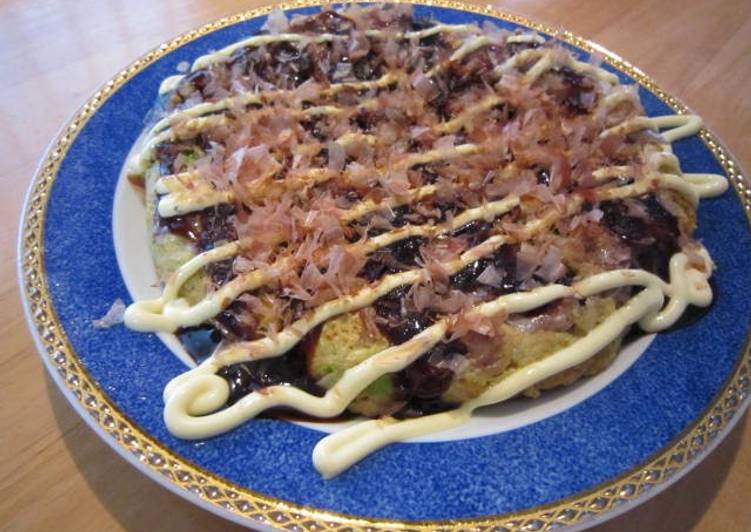Satoimo Taro Root Okonomiyaki. Satoimo (里芋) or taro roots are a starchy root crop that is widely enjoyed in Japanese cuisine. They are often prepared through simmering in dashi and soy sauce in home-cooked dishes and traditional Japanese dishes. Compared to other varieties of taro, Satoimo is smaller in size with a round body.
 Not everyone is a fan of the slimy texture but there's something about them that make them a heartier ingredient compared to potatoes.
But I always like making things with a twist , so I challenged myself by making okonomiyaki without using flour.
Make sure not to press down on this while cooking in order to not kill the fluffiness.
You can have Satoimo Taro Root Okonomiyaki using 5 ingredients and 5 steps. Here is how you achieve it.
Not everyone is a fan of the slimy texture but there's something about them that make them a heartier ingredient compared to potatoes.
But I always like making things with a twist , so I challenged myself by making okonomiyaki without using flour.
Make sure not to press down on this while cooking in order to not kill the fluffiness.
You can have Satoimo Taro Root Okonomiyaki using 5 ingredients and 5 steps. Here is how you achieve it.
Ingredients of Satoimo Taro Root Okonomiyaki
- Prepare 150 grams of Freshly grated satoimo taro root.
- It's 50 ml of Dashi stock.
- Prepare 100 grams of Shredded cabbage.
- It's 1 of Whisked egg.
- Prepare 100 grams of Sliced pork.
Information about Satoimo Root (Taro) including applications, recipes, nutritional value, taste, seasons, availability, storage, restaurants, cooking Satoimo (Sa-toy-imo) is the Japanese name for the variety of taro root that grows wild and is also cultivated in Japan and in other parts of Southeast Asia. Okonomiyaki is getting slowly more popular outside of Japan. It's often described as a Japanese pizza, but it's I just wanted to make a quick comment as I'm a HUGE taro root fan, that the Taro root is called Satoimo, and is from a completely different plant than Nagaimo. The Satoimo Root, otherwise known as Japanese Sweet Taro, is a peculiar looking vegetable that grows rampantly in Japan.
Satoimo Taro Root Okonomiyaki step by step
- Peeling satoimo can be a pain, so make sure to use pre-washed ones. Grate using a grater..
- Add dashi stock broth, whisked eggs, and shredded cabbage together, and mix well while whipping air into the mixture..
- Thinly coat a pan with oil, pour in the batter, add pork on top, and cook both sides until golden brown..
- This batter is too soft, so it is nearly impossible to flip it over with a spatula! Use 2 frying pans to flip it over..
- Top with otafuku okonomiyaki sauce, mayonnaise, and bonito flakes, and it is done. The sublime light, fluffy texture is so addictive!.
This root crop is also the subject of a number of curious studies, as it supposedly provides a number of health benefits. Those who are interested in this root crop should. Taro Root is a delicious, nutty vegetable that is easy to grow. Satoimo are eaten throughout Asia, especially in India, China, Korea and Japan. They are a starchy root vegetable known for their somewhat sticky, slimy texture.